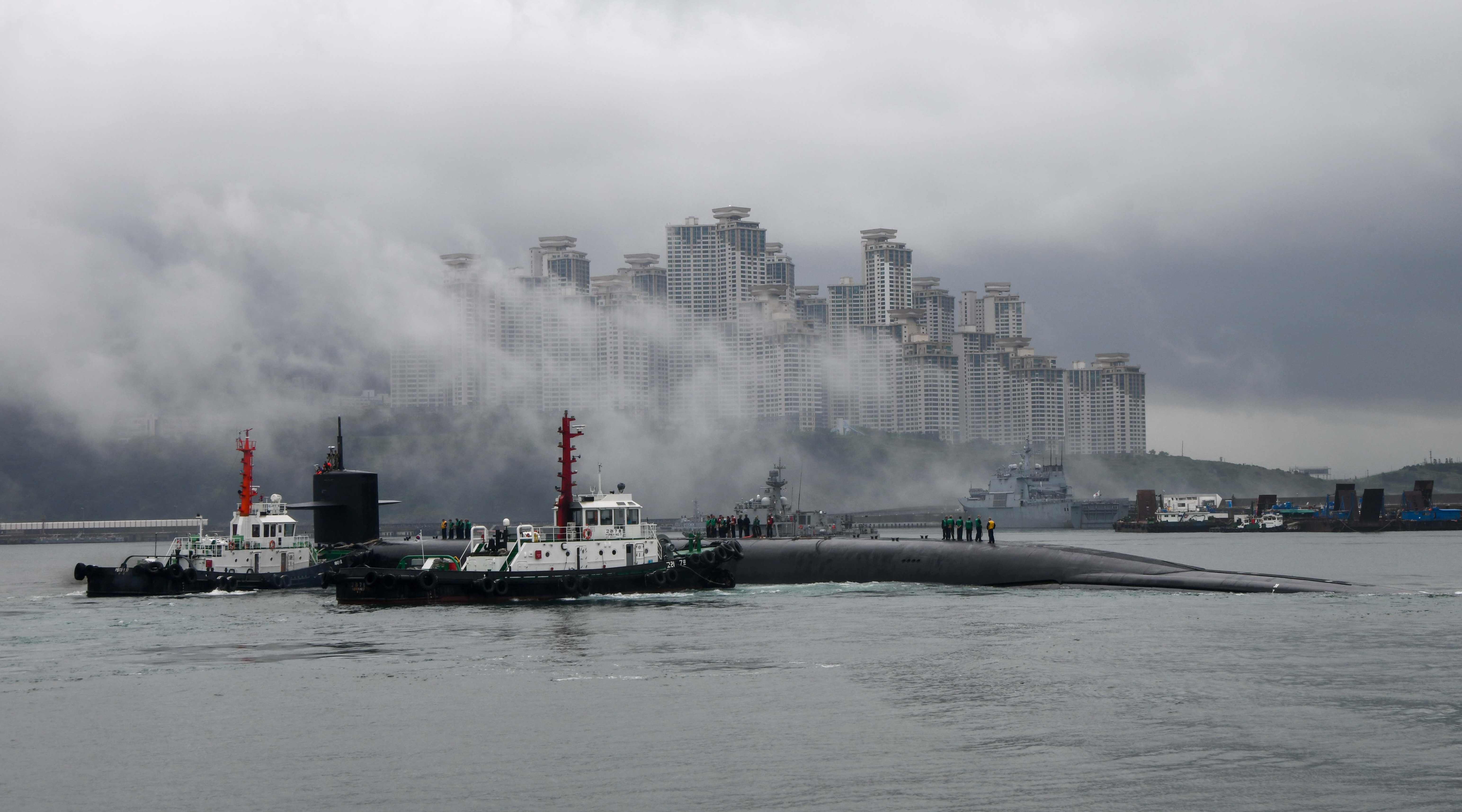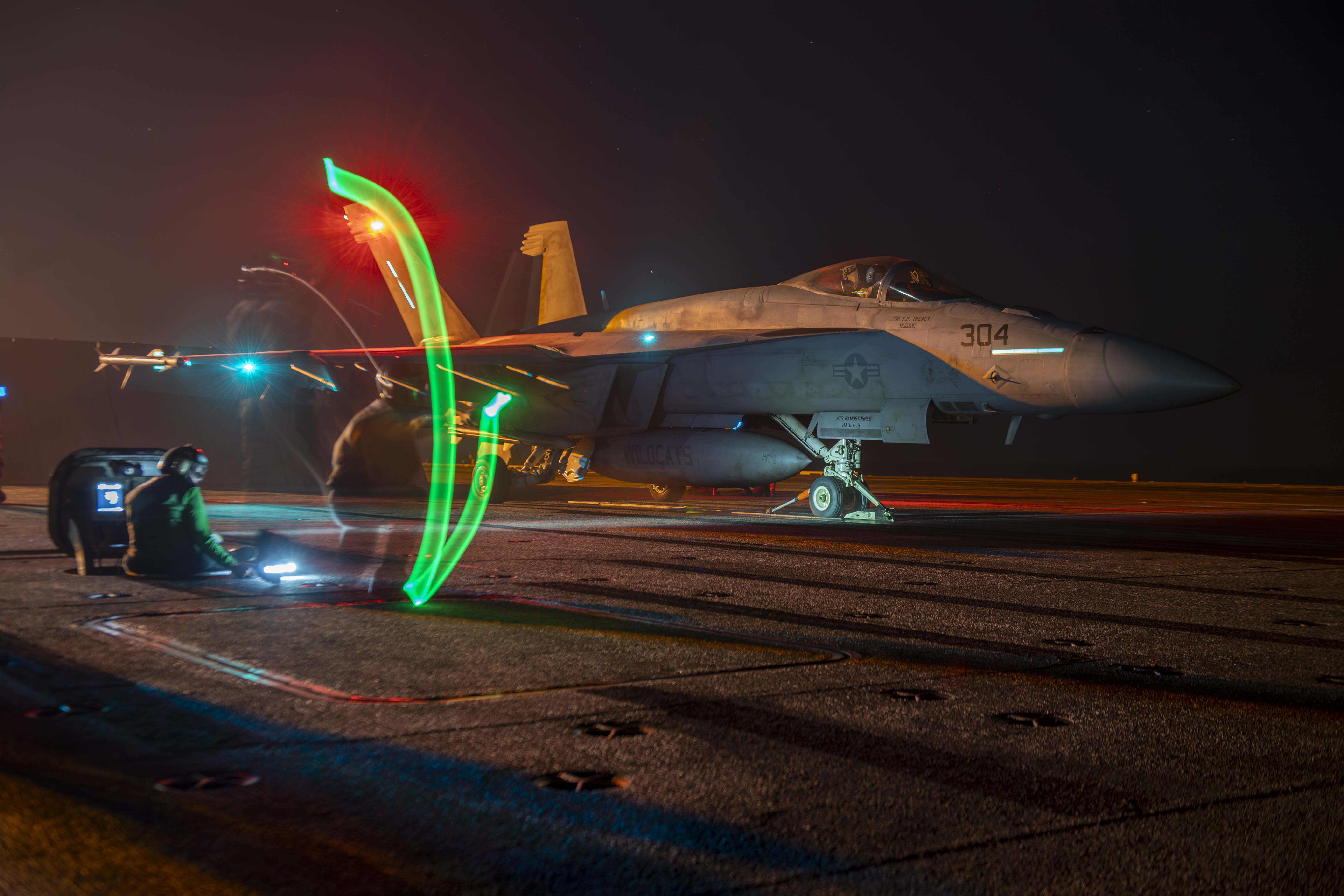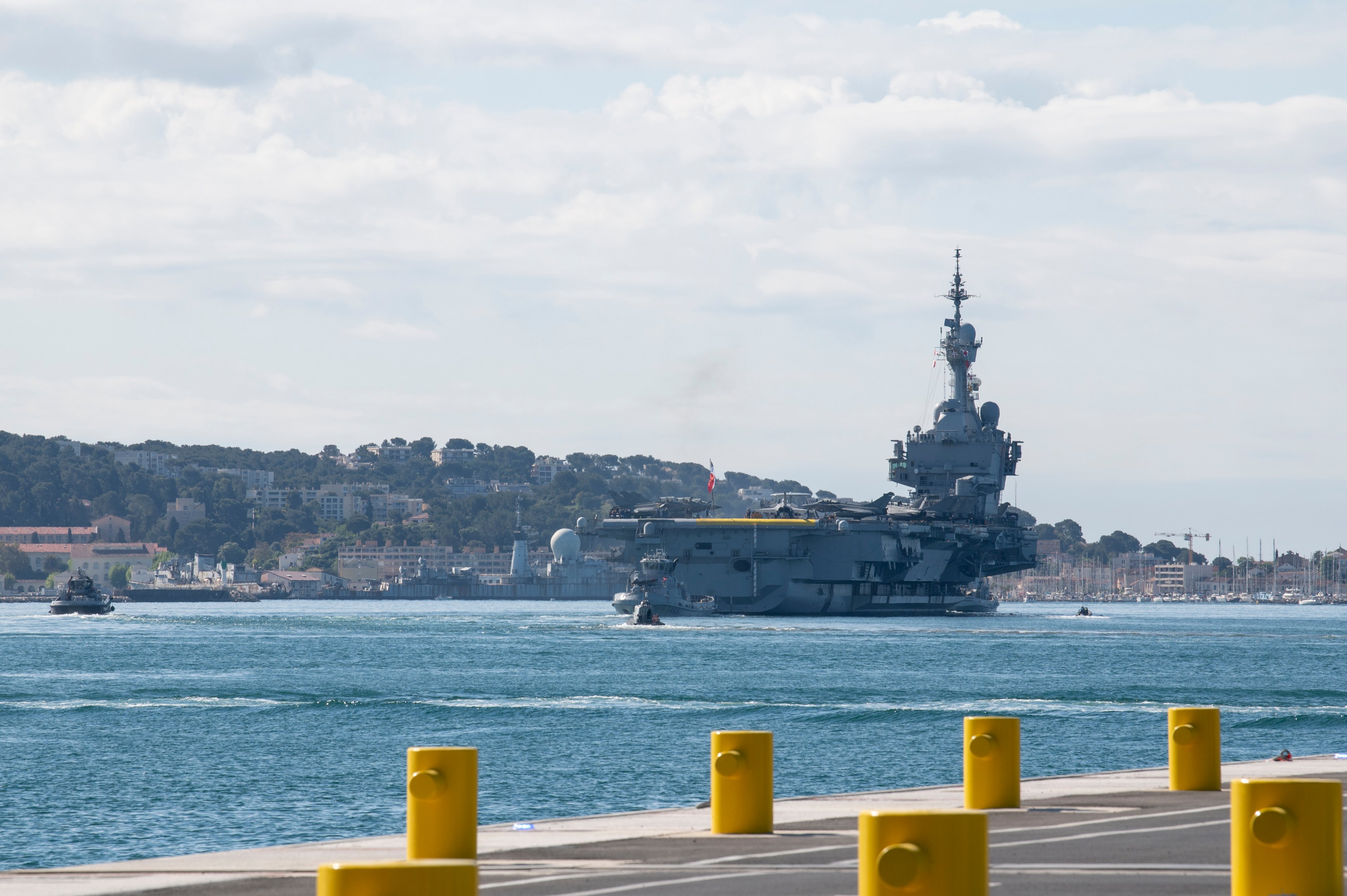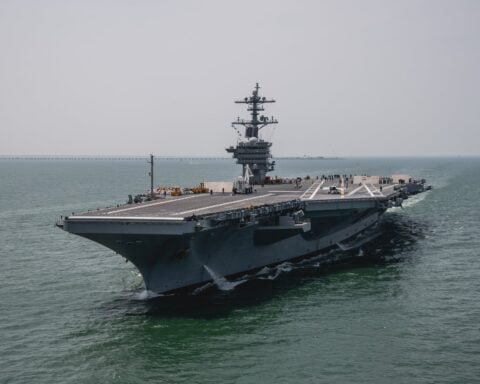Rising young U.S. Navy officer Stephen Decatur earned famous praise for ‘the most bold and daring act of the age’—or did he?
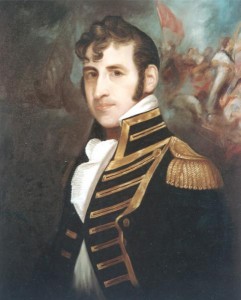
Late in the evening on 16 February 1804, the ketch Intrepid , commanded by Lieutenant Stephen Decatur, entered Tripoli Harbor. Almost becalmed in the dying breeze, the Intrepid drifted with agonizing slowness toward the captured American frigate Philadelphia , lying under the massed guns of the bashaw’s castle and harbor fortifications. As the Intrepid approached, a Barbary lookout on the Philadelphia spotted the Americans and cried out the alarm. The Intrepid tied onto the frigate. Decatur and 60 men boarded the Philadelphia , scattered or killed her harbor watch, and burned the ship. They then made good their escape in the Intrepid, with only one sailor slightly wounded.
The raid into Tripoli Harbor helped establish the reputation of the U.S. Navy, small as it then was, and is an iconic part of the service’s history. Almost equally known in American naval lore is that Admiral Horatio Lord Nelson, upon learning of the raid, called it “the most bold and daring act of the age.” It’s no wonder such a statement has assumed a hallowed aura. Nelson was a brilliant and daring naval officer, perhaps the greatest admiral in the long maritime history of England, and if he said the raid was without equal, his audience (posterity) can accept it as truth. Equally important, there is the sense of a laying-on of hands by Nelson, who died 18 months later in the moment of his greatest triumph at Trafalgar, “blessing” a seminal event led by one of the dynamic officers in the rising navy from across the Atlantic. It’s a dramatic story, loaded with symbolism.
But did Nelson actually call the burning of the Philadelphia “the most bold and daring act of the age”?
No contemporary or near-contemporary biography of Decatur, and no early account of the Barbary Wars, contains the Nelson quote. In what may have been the first attempt to provide the public with an account of Decatur’s life, Washington Irving’s 1813 article in the widely read Analectic Magazine , Nelson’s comment is absent. An 1819 collective biography of early American military and naval officers, written when Decatur was alive, makes no reference to the Nelson quote. The first full-scale biography of Decatur, published in 1821 (just after his death), contains no hint of it, nor does the first great history of the U.S. Navy, James Fenimore Cooper’s, the first edition of which appeared in 1839. 1
The first recounting of the “most bold and daring act of the age” quote was in 1846, by Alexander Slidell Mackenzie in his biography Life of Stephen Decatur . 2 Mackenzie (1803–48) entered the Navy as a midshipman in January 1815. He actually glimpsed Decatur once. As a 12-year-old midshipman on board the brig Chippewa , Mackenzie watched as Decatur sailed into Gibraltar Bay in the frigate Guerriere in October 1815, having led the naval war against Algiers. The commodore appeared at the gangway of his ship, descended into his gig, and was rowed to the Independence , the squadron flagship. Thirty years later Mackenzie wrote of himself, “The writer well remembers the impression made on his mind by this spectacle.” Mackenzie watched Decatur “with an intense and overpowering interest, and with a thrill of patriotic pride in his boyish heart, still freshly remembered, and almost felt.” 3
Over his naval career, Mackenzie wrote a number of well-regarded books, including travel narratives and biographies of John Paul Jones and Oliver Hazard Perry. Mackenzie is now remembered for the Somers affair, in which he ordered the hanging of Secretary of War John Canfield Spencer’s son, Philip Spencer, who was then serving as a midshipman on Mackenzie’s ship. The incident supposedly inspired Herman Melville’s Billy Budd . A court of inquiry and a court-martial exonerated Mackenzie, although public opinion condemned him. His naval career continued, and he had command positions in the Mexican War. 4
In any event, in his Decatur biography Mackenzie provided a full account of the dramatic approach of the Intrepid , the boarding of the Philadelphia , her burning, and the escape of Decatur’s band. The biographer referred to the admiration of Commodore Edward Preble and the entire U.S. Mediterranean Squadron for the feat. Mackenzie continued that as the news spread, “all Europe” came to admire the raid, concluding:
At this period, Nelson was in command of the British fleet engaged in blockading Toulon, having his flag aboard the Victory . When the news of Decatur’s achievement reached him, he is said to have pronounced it “the most bold and daring act of the age.” 5
For more than a century thereafter, naval historians, whether or not they cited Mackenzie, accepted that Nelson had made that comment. In a detailed chronicle of the Navy’s early years, used as a text by a generation of U.S. Naval Academy midshipmen, Edgar Stanton Maclay recounted Decatur’s raid in detail and concluded that “Nelson, who at this time was in command of the British blockading fleet before Toulon, expressed it [as] ‘the most bold and daring act of the age.’” In his 1905 history of the Barbary Wars, Gardner W. Allen provided the Nelson quote without equivocation and without citation. In his 1950 group profile of the sailing Navy’s captains, Preble’s Boys , popular historian Fletcher Pratt used the quote and opined—quite erroneously—that Nelson “was a man who did not lightly scatter praise.” 6
Many modern biographers of Decatur, and recent naval historians, also accept that Nelson made the statement, although over time, with increasing reservations. In their biographies of Decatur, written in 1931 and 1937 respectively, Irvin Anthony and Charles Lee Lewis both used the Nelson quote without reservation and without citations.
In his 2004 work, James Tertius de Kay—the first of four 21st-century biographers of Decatur—wrote that “When Admiral Nelson heard the story on board his flagship Victory off Toulon, he roared with laughter and pronounced it ‘the most bold and daring act of the age.’” It is unclear why de Kay imagined that Nelson would think the news was hilarious.
Spencer Tucker’s 2005 biography, tracking Mackenzie’s closely, stated that Nelson, off Toulon in the Victory, “is said to have called the action ‘the most bold and daring act of the age.’” In his 2005 biography of Decatur, Robert Allison wrote that Nelson was “reported” to have uttered the famous line. Allison added, “Although it is quite unlikely that Nelson did say this—there is no contemporary reference, and the first published account appeared in Alexander Slidell Mackenzie’s biography of Decatur, forty years after the event—it is also possible that Mackenzie heard of it from a sailor who had been in the Mediterranean at the time.”
In a bizarre formulation, Leonard Guttridge wrote in his 2006 biography of Decatur that “Admiral Lord Horatio Nelson was described as impressed” by Decatur’s mission. Guttridge presumably was concerned about the provenance of the Nelson quote, opted not to use it, but provided a neutered construct instead: No one described Nelson as “impressed.” The recent biographers of Charles Stewart, commander of the brig Syren , which escorted the Intrepid to Tripoli and back to the squadron, were more dismissive, calling the purported Nelson quote an “apocryphal tale.” 7
Among writers about the Navy, Glenn Tucker wrote in Dawn Like Thunder (1963) that “applause came from an unexpected quarter. Lord Nelson, who knew about such things, who at the time was off Toulon blockading the French fleet, said when he heard of the feat that it was ‘the most bold and daring act of the age.’” Ian W. Toll noted in Six Frigates (2006) that Pope Pius VII praised the American Mediterranean squadron’s actions, and “Nelson—in naval circles a higher authority than the pope—was said to have remarked that Decatur’s mission to destroy the Philadelphia was ‘the most bold and daring act of the age.’” As recently as 2008, George Daughan in If by Sea provided the Nelson phrase without equivocation. 8
There have been efforts to figure out if Nelson uttered the famous line. In 2002, after recounting the event and Mackenzie’s quotation of Nelson, I wrote a “Query” in The Mariner’s Mirror, a leading maritime journal, seeking an answer:
Some accounts have it that Nelson uttered or wrote the comment to Sir Alexander Ball, the civil governor of Malta. Is the Nelson comment apocryphal? I would be grateful to learn if there is a Nelson (or Ball? or another officer who ostensibly heard Nelson?) letter or document with this phrase.
There was no response. The Nelson Letters Project, which began in 1999, represented a systemic British scholarly effort to locate and record all of Nelson’s unpublished letters, and provided an opportunity for finding a letter in which Nelson wrote his famous line, if he ever did. But Nelson: The New Letters (2005) does not contain or refer to such a letter. 9
In the early 1990s, W. M. P. Dunne began work on what was to be a magisterial scholarly biography of Decatur. Dunne died in late 1995, with his magnum opus incomplete. His family provided copies of his manuscript to a number of naval historians, and such was Dunne’s influence that two of the recent Decatur biographers, de Kay and Guttridge, dedicated their Decatur biographies to Dunne’s memory. Bill Dunne, who had a forceful personality and relished debunking myths, had made efforts to discover if Nelson had really said the famous line.
Dunne proved that at the very least, Nelson learned the details of Decatur’s raid into Tripoli Harbor. After the mission, theIntrepid , along with her escort the Syren , sailed back to join the American squadron, then moored in the harbor of Syracuse, Sicily. They arrived on 19 February 1804. Decatur rejoined his own command, the schooner Enterprize , and the squadron commander, Edward Preble, immediately ordered the Enterprize to Messina for repairs. She was beset by a northeasterly gale, however, and sailed into Valletta, Malta, on 25 February. Several days later, Stewart sailed the Syren into Valletta. He carried Preble’s 24 February 1804 dispatch to Sir Alexander Ball, the civil governor of Malta and one of Nelson’s “ band of brothers”:
SIR,
As it is probable you may hear various accounts of the capture and destruction of the Tripolitan Frigate late the United States Frigate Philadelphia in the Harbour of Tripoly, I beg leave to mention the transactions relative to that affair. On the 3rd inst[ant] I sent the Ketch Intrepid of 4 Guns, with 11 Officers, and 59 Seamen and Marines, under the command of Lt. Decatur, to Tripoly with orders to burn the Frigate. The Syren Brig accompanied her to anchor off the Harbour, send in her boats to assist, and cover the retreat of the Ketch. The weather was unfavourable until the night of the 16th Inst[ant] when they arrived, the Brig took her position, and the Ketch entered the Harbour—Was hailed from the batteries and the Frigate—Answered from Malta and the rig of the Vessel deceived the enemy until she was alongside the Frigate; they were then fatally undeceived. Lieut. Decatur boarded with his Men, and carried her after a short conflict in which upwards of 20 Tripolines were killed on the Decks—One large Boat load made their escape, some ran below & probably perished in the flames; and many jumped overboard. As soon as complete possession was gained, she was set on fire, and totally destroyed. All her Guns were mounted and loaded; and two of their Corsairs lay within half Musket shot of her. As soon as she was in flames, the Batteries, Bashaw’s Castle and Corsairs commenced firing on the Ketch. One Cannon shot passed through her Top Gall[an]t sail was all the damage she received. We did not lose a man, and had only one wounded. . . . 10
Thus, not only did Ball have a detailed account from the American squadron commander, but he also could and did speak about the raid to both Stewart and Decatur. As captains of visiting foreign warships, they paid courtesy calls on Ball. It is safe to assume that Ball, as a British admiral, had at least some professional interest in the raid.
In a letter dated 17 March 1804, Ball reported the incident to Nelson, quoting Preble’s letter at great length (the exact material above). 11 Thus, Nelson knew the details of the burning of the Philadelphia in Preble’s own words, albeit through Ball, including that Decatur had been in command. However, there is no record in the National Maritime Museum of later correspondence from Ball to Preble, Decatur, or Stewart, in which Ball might have shared Nelson’s praise with one of the Americans, had Nelson written him in response with the phrase. 12 Of course, Nelson may have written the words ascribed to him in a subsequent letter to anyone in his wide circle of correspondents. The published Nelson correspondence, including Nicholas Nicolas’ 19th-century multivolume collection, does not contain a letter with the phrase, nor does Nelson: The New Letters . While it is still possible that a Nelson letter could be discovered that contains the quote, the chances for such a discovery seem quite small.
Theoretically, there might be several ways to try to find out if Nelson really called the burning of the Philadelphia “the most bold and daring act of the age.” One way is to try to determine if anyone in Nelson’s circle of correspondents or friends repeated his comment in a letter to someone (anyone) else. This is a daunting task, like looking for a needle in a haystack. Nelson had a wide circle of naval officers, friends, and followers, and to pursue this theory to the logical extreme, any of them might have recounted the phrase from late March 1804 until 1846, when Mackenzie finished his manuscript. Even in the 21st century, when documents are increasingly available electronically, the task of looking for such a letter seems insurmountable.
However, there is another way to try to determine if Nelson’s quote is real—try to find out how Mackenzie learned of it. Thus far, that route has not proven any more fruitful. Although some of Mackenzie’s official correspondence and naval papers can be found, there apparently is no collection of his literary papers. While the publishers of his Decatur biography, Charles C. Little and James Brown, live on as Little, Brown and Company, today that company is unable to find the original draft manuscript or any notes Mackenzie may have made in submitting it. 13
Thus, the field is still open for a definitive answer: It is unclear if Nelson actually called the burning of the Philadelphia “the most bold and daring act of the age.”
But here is a hypothesis. Anyone who reads Mackenzie’s biography will notice the effort he made to locate people who knew Decatur and to plumb them for information. In Mackenzie’s preface, he specifically acknowledged Commodore Charles Stewart for information concerning “incidents of the Tripolitan War” and Commodore Charles Morris “for many new details in relation to the burning of the Philadelphia.” 14 Alone among the early officers of the Navy, Morris wrote a short autobiography, apparently in the 1840s (but not published until 1880), and although he writes in detail about the Philadelphia raid, he does not provide or mention the Nelson quote. 15 The omission is some evidence that Morris was not Mackenzie’s source for the quote.
That leaves Stewart. Unfortunately, Stewart’s papers seem not to have survived. However, according to his biographers, in March 1822 Stewart sailed into Valparaiso, Chile, in command of the ship-of-the-line Franklin . While in port, he made the round of meetings and dinners (the “standard invitations”) with foreign officers and officials. 16 One of the officers he met was Sir Thomas Masterman Hardy, then the commander of the British South American Squadron. Hardy (1769–1839) had served as Nelson’s flag captain on board the Victory from 1803 onward, and famously kissed his friend and admiral as Nelson lay dying in the cockpit of the Victory in the aftermath of the Battle of Trafalgar. 17 There was no officer who was in Nelson’s physical presence more than Hardy, and as his friend and direct subordinate, he dined with Nelson and frequently walked the quarterdeck with him.
Here, then, is the hypothesis: When Hardy met Stewart socially in 1822, he learned that they both had been in the Mediterranean at the same time, almost 20 years earlier. Upon discovering that Stewart was Decatur’s friend, Hardy told him what his friend, Nelson, had said about the raid into Tripoli Harbor—that the burning of the Philadelphia was “the most bold and daring act of the age.” Stewart remembered what Hardy had said and later told Mackenzie.
To return to Mackenzie’s actual language, he wrote that Nelson “ is said to have pronounced it ‘the most bold and daring act of the age,’” indicating that Mackenzie recognized the multiple-hearsay nature of whatever was told to him. I concede that this hypothesis is highly conjectural. Even if Stewart was the source for the Nelson quote, he might have heard it from another British officer—although none of them had Hardy’s near-constant access to Nelson in 1804.
It is easy to question the Nelson quote as “quite unlikely” or “apocryphal” because, apparently, there is no contemporary account of it. In our modern day, we distrust the oral tradition as unreliable and susceptible to manipulation. Fair enough. Given the standards that Mackenzie set for himself—he “claim[ed] to have sought truth diligently from every source within his reach”—and the overall reliability of his Decatur biography, it is difficult to believe he fabricated the Nelson quote. 18 Indeed, by using the passive voice (“is said”), Mackenzie indicated he was not vouching for the quote, but passing along what someone had communicated to him. That someone may have been Stewart, having spoken with Hardy; perhaps in the fullness of time, we will have an answer.
1. Washington Irving, “Biography of Commodore Decatur,” Analectic Magazine , vol. 1 (1813), pp. 502–10; Thomas Wilson,The Biography of the Principal American Military and Naval Heroes (New York: John Low, 1819), vol. 2, pp. 99–118; S. Putnam Waldo, The Life and Character of Stephen Decatur (Hartford: P. B. Goodsell, 1821); J. Fenimore Cooper, History of the Navy of the United States of America (New York: Stringer & Townsend, 1856; orig. pub 1839).
2. Alexander Slidell Mackenzie, Life of Stephen Decatur (Boston: Charles C. Little and James Brown, 1846).
3. Ibid., pp. 288–89.
4. See Buckner F. Melton Jr., A Hanging Offense: The Strange Affair of the Warship Somers (New York: Free Press, 2003);Dictionary of American Biography (New York: Charles Scribner’s Sons, 1933), vol. 6, pp. 90–91.
5. Mackenzie, Life of Decatur , p. 81.
6. Edgar Stanton Maclay, A History of the United States Navy from 1775 to 1898 (New York: D. Appleton & Co., 1898), vol. 1, p. 268; Gardner W. Allen, Our Navy and the Barbary Corsairs (Boston: Houghton Mifflin Co., 1905), p. 173; Fletcher Pratt,Preble’s Boys: Commodore Preble and the Birth of American Sea Power (New York: William Sloane Associates, 1950), p. 95.
7. Irvin Anthony, Decatur (New York: Charles Scribner’s Sons, 1931), p. 138; Charles Lee Lewis, The Romantic Decatur(Philadelphia: University of Pennsylvania Press, 1937), p. 45; James Tertius de Kay, A Rage for Glory: The Life of Commodore Stephen Decatur, USN (New York: Free Press, 2004), p. 59; Spencer Tucker, Stephen Decatur: A Life Most Bold and Daring (Annapolis, MD: Naval Institute Press, 2005), p. 57; Robert J. Allison, Stephen Decatur: American Naval Hero, 1779–1820 (Amherst: University of Massachusetts Press, 2005), p. 53; Leonard F. Guttridge, Our Country Right or Wrong: The Life of Stephen Decatur, the U.S. Navy’s Most Illustrious Commander (New York: Tom Doherty Associates, 2006), p. 18; Claude Berube and John Rodgaard, A Call to the Sea: Captain Charles Stewart of the U.S.S. Constitution (Washington, DC: Potomac Books, 2005), p. 39.
8. Glenn Tucker, Dawn Like Thunder: The Barbary Wars and the Birth of the U.S. Navy (Indianapolis: Bobbs-Merrill., 1963), p. 283; Ian W. Toll, Six Frigates: The Epic History of the Founding of the U.S. Navy (New York: W. W. Norton, 2006), p. 258; George C. Daughan, If by Sea: The Forging of the American Navy from the Revolution to the War of 1812 (New York: Basic Books, 2008), p. 370.
9. Frederick C. Leiner, Query (“Stephen Decatur”), The Mariner’s Mirror , vol. 88, no. 2 (May 2002), p. 219; Colin White, ed.,Nelson: The New Letters (Woodbridge, Suffolk, England: The Boydell Press, 2005) (publishing 507 of 1,300 newly found Nelson letters).
10. W. M. P. Dunne, “Stephen Decatur, 1779–1820: A Critical Biography,” MSS (1995), pp. 281, 285–86, citing Dudley W. Knox, ed., Naval Documents Related to the United States Wars with the Barbary Powers (Washington, DC: Government Printing Office, 1941), vol. 3, p. 446, E. Preble to S. Decatur, 20 February 1804; vol. 3, p. 456 , S. Decatur to E. Preble, 26 February 1804; vol. 3, pp. 454–55, E. Preble to A. Ball, 24 February 1804.
11. National Maritime Museum (NMM), Greenwich, England, Phillips-Croker Collection, CRK/1/132, A. Ball to H. Nelson, 17 March 1804 letter.
12. Email, Quintin Colville, Curator of Naval History, NMM, to F. Leiner, 19 November 2010.
13. Letter, Eve Rabinovits (executive assistant to the publisher, Little, Brown and Co.) to F. Leiner, 30 March 2011.
14. Mackenzie, Life of Decatur , p. 4.
15. Charles Morris, The Autobiography of Commodore Charles Morris, U.S. Navy (Annapolis, MD: Naval Institute Press, 2002; orig. pub. 1880).
16. Berube and Rodgaard, A Call to the Sea , p. 149.
17. See Ludovic Kennedy, Nelson and His Captains (London: William Collins, Sons & Co., 1975); biographical sketch of Hardy at www.royalnavalmuseum.org/info_sheets_thomas_hardy.html .
18. Mackenzie, Life of Decatur , p. 5.

